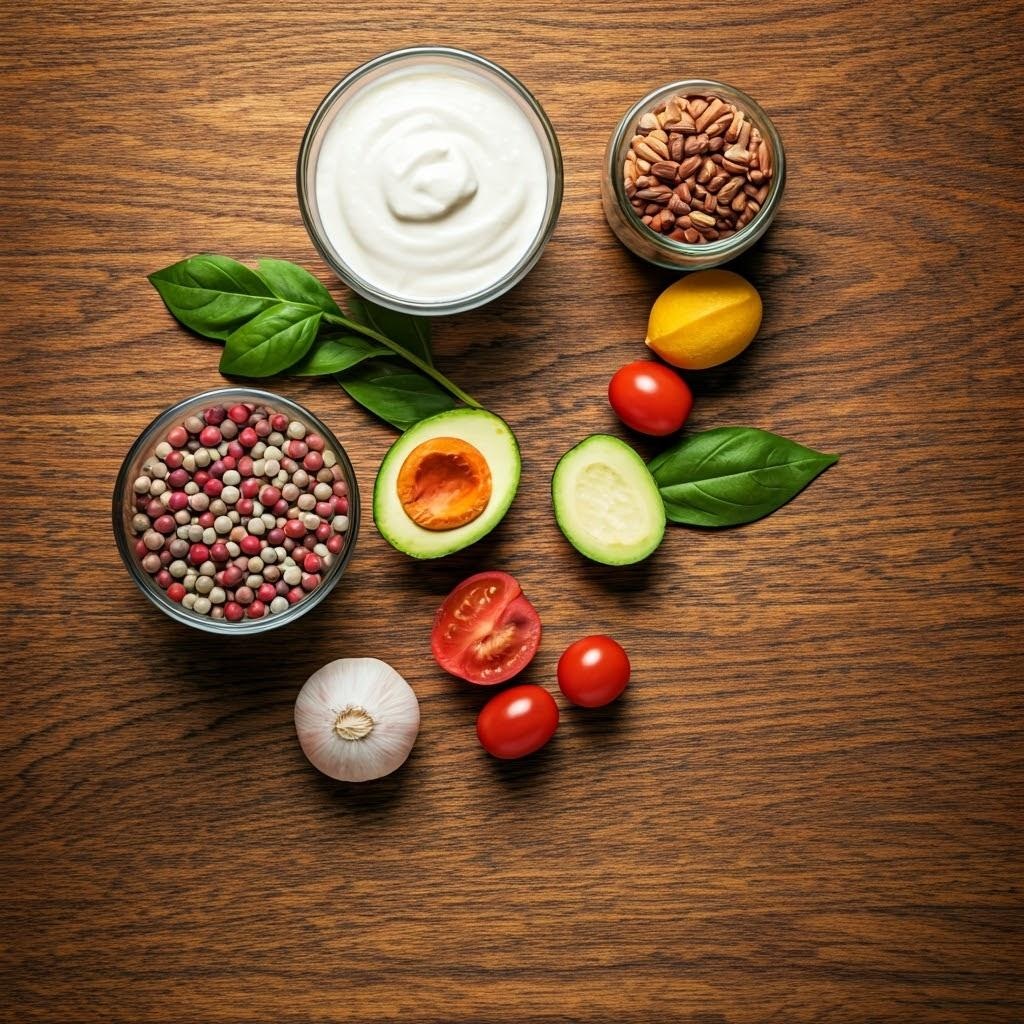
The Best Foods for Healthy Eyes
Fueling Perfect Vision: The Best Foods for Healthy Eyes
Nutrition is closely linked to healthy eyes. A poor diet can lead to serious conditions such as macular degeneration, cataracts, and dry eye syndrome. Diet plays a crucial role in maintaining eye health and preventing various diseases.
Vision impairment affects millions of people worldwide. Nearly 2.7 billion people are suffering from some form of eye issue. Consuming the right nutrients can help protect your eyes and preserve your vision as you age.
This article discusses key foods that promote eye health: chia seeds, salmon, eggs, water, oranges, spinach, peanuts, and sweet potatoes. Each of these foods offers unique benefits that help keep your eyes healthy. Let’s dive into the details.
The Power of Antioxidants: Protecting Your Vision
Spinach and its Lutein & Zeaxanthin Riches
Spinach is a leafy green packed with antioxidants like lutein and zeaxanthin. These compounds help filter harmful blue light, reducing the risk of macular degeneration. Studies show that a diet rich in these nutrients can significantly lower the chances of developing age-related eye diseases.
Serving Suggestions:
- Add spinach to smoothies for a nutritious boost.
- Toss it in salads with oranges and nuts.
- Sauté it with garlic and olive oil for a quick side dish.
Orange Powerhouse: Vitamin C and its Impact
Oranges are not just juicy and sweet; they are a rich source of Vitamin C. This vitamin is vital for collagen production in the eye, helping maintain the cornea’s integrity. It also plays a protective role against cataracts.
Incorporating Oranges:
- Snack on an orange for a refreshing treat.
- Add orange segments to salads.
- Use orange juice in marinades or dressings.
Chia Seeds: A Tiny Seed, Mighty Benefits
Chia seeds are small but packed with omega-3 fatty acids and antioxidants. These nutrients help fight inflammation and support overall eye health. Regular consumption of chia seeds can lower the risk of dry eyes and other disorders.
Preparation Methods:
- Add chia seeds to your morning oatmeal.
- Blend them into smoothies for added fiber.
- Use them in baking recipes for muffins or cookies.
Omega-3 Fatty Acids: Essential for Eye Health
Salmon: A Vision-Boosting Delight
Salmon is one of the best sources of omega-3 fatty acids, specifically DHA and EPA. These omega-3s reduce the risk of dry eye syndrome and macular degeneration. Regularly consuming salmon can keep your eyes lubricated and healthy.
Healthy Salmon Recipes:
- Bake salmon with lemon and herbs for a simple dish.
- Grill salmon fillets and serve with spinach on the side.
- Add salmon to salads for a protein-packed meal.
Other Omega-3 Sources
While salmon is a star, other foods also provide omega-3s. Flaxseeds and walnuts are great alternatives. Incorporating these into your diet can further enhance eye health and reduce inflammation.
Essential Vitamins and Minerals: Supporting Healthy Eyes Function
Eggs: A Nutritional Powerhouse
Eggs are not just versatile; they’re also loaded with essential vitamins for eye health, including Vitamin A. This vitamin is critical for maintaining good vision as it helps the eyes to adapt to light.
Preparation Ideas:
- Scramble eggs with spinach and cheese for a hearty breakfast.
- Poach eggs and serve over whole-grain toast.
- Include boiled eggs in salads for extra protein.
Sweet Potatoes: Beta-Carotene’s Role in Vision
Sweet potatoes are rich in beta-carotene, which the body converts to Vitamin A. Vitamin A is essential for good vision, especially in low-light conditions. Consuming sweet potatoes regularly can help keep your vision sharp.
Serving Suggestions:
- Mash sweet potatoes as a tasty side dish.
- Roast sweet potato cubes with spices for a healthy snack.
- Add sweet potatoes to soups for added nutrition.
Hydration and Beyond: Complementary Factors for Healthy Eyes
The Importance of Water

Staying hydrated is crucial for maintaining the health of your eye tissues. Dehydration can lead to dry eyes and other complications. Aim for at least eight glasses of water a day to keep your body and eyes well-hydrated.
Peanuts and Other Sources of Vitamin E
Peanuts are an excellent source of Vitamin E, an antioxidant that helps protect the eyes from oxidative stress. Regular consumption of Vitamin E can lower the risk of cataracts and age-related macular degeneration.
Other Vitamin E Sources:
- Almonds
- Sunflower seeds
- Avocado
Putting it all Together: A Practical Guide to Eye-Healthy Eating
Sample Meal Plan

- Breakfast: Scrambled eggs with spinach and a side of whole-grain toast.
- Snack: A handful of peanuts and an orange.
- Lunch: Grilled salmon salad with mixed greens and chia seeds.
- Snack: Chia pudding made with almond milk.
- Dinner: Baked sweet potatoes with sautéed spinach.
Tips for Sustainable Dietary Changes
- Start slowly by adding one eye-healthy food to your daily meals.
- Experience with new recipes to keep meals exciting.
- Keeping healthy snacks, like nuts and fruits, easily accessible.
Consulting Healthcare Professionals
For personalized dietary guidance, consider speaking with a healthcare professional or nutritionist. They can provide tailored advice based on individual health needs.
Conclusion
In summary, incorporating foods like spinach, oranges, chia seeds, salmon, eggs, sweet potatoes, peanuts, and water into your diet can significantly enhance eye health. Each of these foods offers unique benefits that contribute to maintaining optimal vision.
A balanced diet is key to keeping your eyes healthy and your vision sharp. Start making small changes today and embrace an eye-healthy diet. Your eyes will thank you!

